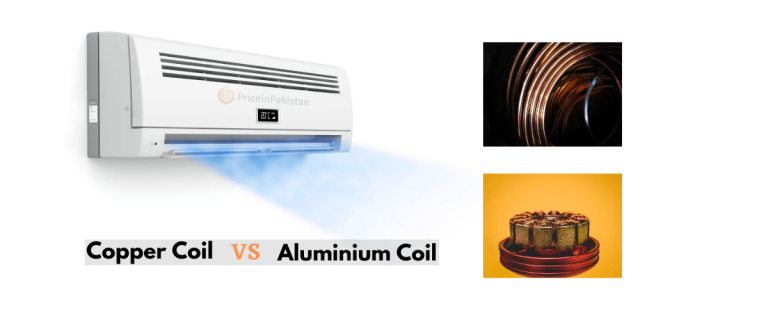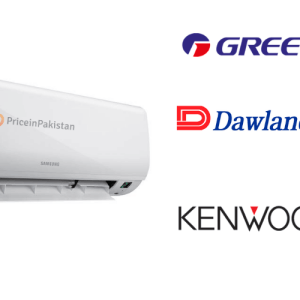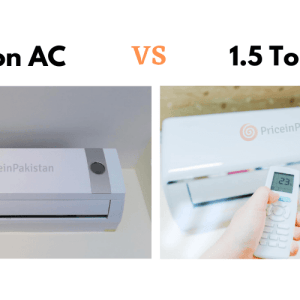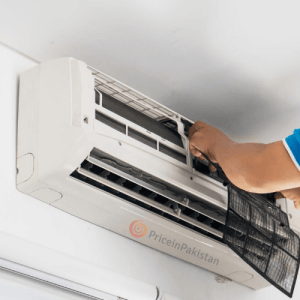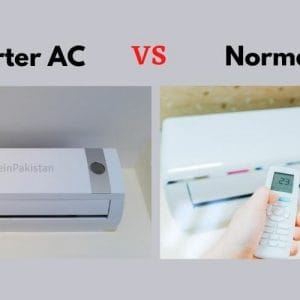Copper Coil vs Aluminium Coil in the Air Conditioners, It is an old debate whether Copper coil is better than Aluminum coil is it the other way around. Understanding the function of the coil in air conditioners is important before we get to the pros and cons of Copper and Aluminum coil.
Table of Contents
Function of Coils in Air Conditioners
The refrigerant gas is the main component of an air conditioner. It goes to liquid state during compression and then comes back to gaseous state after absorbing the heat in the room. The refrigeration process of the gas has 4 major parts.
- Compression: The gas turns into a high-pressure hot liquid when pressurized.
- Condensation: The high-pressure hot liquid flows through the coil where it turns into cooler liquid by releasing heat from the outdoor unit. This is where the coil comes into play.
- Expansion Valve: This valve reduces the pressure of the liquid.
- Evaporation: This low pressure liquid goes through the evaporator coil again where it absorbs heat in the room and turns into gas. It happens in the indoor unit.
The heat inside the room is absorbed and transported outside and this process takes place in the coils. This process is the same in all the HVAC systems, except the size of the system changes with tonnage.
In the past, these coils used to come only in copper material because of certain benefits it offered. However, it also made air conditioners costly that everyone couldn’t afford. In the 1970s, General Electronics made a groundbreaking innovation in the AC industry. They used aluminium coils instead of copper ones. The cost of aluminum coil was much lower than the copper coil, which subsequently brought down the rates of air conditioners so that more people could afford it and widen the customer base of the air conditioners.
Differences between Copper and Aluminium Coil:
| Copper Coil | Aluminium Coil |
|---|---|
| Higher heat absorption and transfer coefficient than aluminium coil | Lower heat absorption and transfer coefficient than copper coil |
| Costlier than aluminium | Cheaper than aluminium |
| Less pliable or bendable than Aluminium | Greater flexibility than copper |
| Copper is easier to clean and maintain than aluminium | It’s hard to clean and maintain them |
| More durable than aluminium coil | Less durable than copper coil is why it is kept in a heavy-duty cabinet. |
| More corrosion resistant than aluminium | Less corrosion resistant than copper |
Now let’s talk about these differences one by one.
Heat Transfer Capabilities:
Transfer of heat is the main function of the coils, therefore, the material of the coil should have greater heat transfer characteristics. Heat transfer coefficient of copper is higher than aluminium meaning that copper absorbs and exchanges heat better than aluminium.
Cost
Copper is more expensive than aluminium which, in turn, increases the cost of the air conditioner. Aluminium is the preferred choice of manufacturer and many buyers as it reduces the manufacturing cost of air conditioners.
Flexibility
Aluminium is more flexible as compared to copper as it can easily bend into any shape you want. The characteristic of the aluminium material makes it inexpensive as well because about three times as much copper is needed to make the coil of the same size and shape. Therefore, copper coils are thinner than the aluminium coils to bring down the cost of the air conditioner.
Reliability and Strength
Copper metal is much easier to repair than aluminium. Also, aluminium coils get damaged easily and most of the time they need replacement. On the other hand, copper coils are much stronger than aluminium therefore they last for a longer time.
Easy Maintenance
As the condenser coils are placed in the outdoor unit, it is exposed to all kinds of climates and dust. Therefore, it needs regular cleaning and maintenance for better performance.
Copper coils are thought to be a better choice than aluminium as it is easier to clean and maintain than aluminium. Also, copper is more durable. As aluminium coils are not too strong, they are kept in a sturdy cabinet to protect them from getting damaged. Due to this reason, they are difficult to clean and maintain.
Corrosion
Corrosion is one of the biggest damaging factors that can significantly reduce the life of the Air Conditioner. Corrosion damages the coils and reduces their heat transferring capabilities. Moreover, corrosion also results in leakage of the coils. Therefore, protecting the coils from corrosion is paramount for keeping your AC in the best condition.
If you live in the higher humidity areas, for example, near the coastline and salt water bodies, corrosion damage will be greater because of the higher moisture content in the air. Corrosion forms a non-conducting layer over the coils that results in reducing the heat transfer capacity.
Today, many techniques are used to protect your air conditioners from corrosion which increases the life of the AC.
website: price in pakistan

Hamza Subhan is a digital content director at Price In Pakistan. He lives in Lahore. He keeps an eye on every new item in the markets of Pakistan and his hand on the pulse of Pakistani people to provide them with the information that they need about the product. He has a bachelor’s degree in Electrical engineering from UET Lahore. His keen passion for the latest technology, gadgets, and knowledge about electrical appliances led him to launch Price In Pakistan. He is the main hand behind the articles related to electrical home appliances and gadgets. When he is not looking out for the new technology and writing about it, he is playing guitar and singing for his friends.
